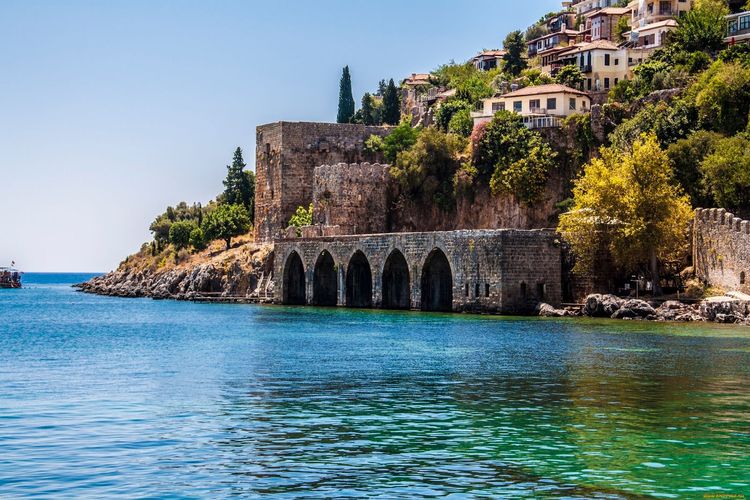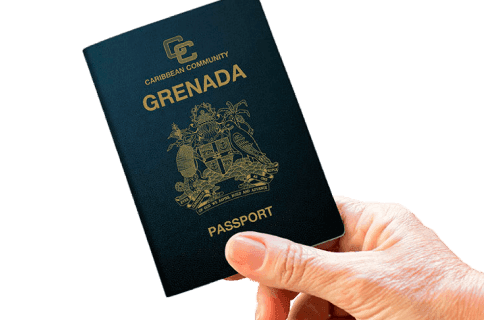In 2024, Portugal maintains its status as one of the most structured and transparent tax systems in the European Union, offering a number of benefits and features for residents and non-residents. Individuals residing in the country or receiving income from Portuguese sources must account for several major taxes, including income tax (IRS), property and capital taxes. That said, the country remains attractive to foreign professionals and retirees due to special tax regimes such as NHR (Non-Habitual Resident). In this article we will look at what taxes individuals need to pay in Portugal in 2024, how they are calculated, as well as familiarize ourselves with the latest changes in the country's tax policy.

Taxes for individuals in Portugal
As of 2024, all individuals in Portugal pay several types of taxes. The most important is the income tax, which is based on the progressive scale common in the world. In addition, there are property taxes, compulsory contributions and capital gains tax. Let's talk about these in more detail.
Income Tax (IRS)
Income tax in Portugal in 2024 is calculated on a progressive scale, starting at 14.5% for the lowest incomes and reaching 48% for high incomes. It is important to note that for residents of the country, the tax is levied on total worldwide income, including income from wages, rent, dividends and other sources. The main income tax rates for 2024 are distributed as follows:
- Up to €7,479 - 14.5%
- Between €7,480 and €11,284 - 23%
- From €11,285 to €15,992 - 26.5%
- From €15,993 to €20,700 - 28.5%
- From €20,701 to €26,355 - 35%
- From €26,356 to €38,632 - 37%
- From €38,633 to €50,483 - 45%
- Over €50,484 - 48%
There is no progressive scale for non-residents, they pay a flat tax of 25%.
Special tax regime for non-residents (NHR)
One of the attractive features of the Portuguese tax system is the Non-Habitual Resident (NHR) regime. This regime allows new residents arriving in Portugal to enjoy favorable tax treatment for a period of 10 years. For example, income from certain activities, such as high-skilled professions, may be taxed at a reduced rate of 20%, and income from foreign sources may be fully exempt from taxation in Portugal if certain conditions are met.
Capital Gains Tax
Capital gains arising from dealing with various assets such as real estate or shares are also taxable. The tax rate in this case is 28% for both residents and non-residents. However, it should be clarified that residents have the opportunity to receive various benefits or reinvest the funds from the sale of real estate in the purchase of a new one.
Social contributions
Working individuals, as well as individual entrepreneurs are obliged to pay social contributions, which amount to 11% of wages for employees and 21.4% for the self-employed. These contributions ensure pension and insurance benefits in the future.
Thus, the taxation of individuals in Portugal depends on the level of income, type of assets and residency status. Special tax regimes such as the NHR make Portugal attractive to foreign professionals and investors by offering flexible tax rates and incentives.
Personal Property Taxes in Portugal
In Portugal, property taxes play an important role in generating revenue for local municipalities and are among the key mandatory payments for property owners. These taxes cover both annual levies and transfer taxes on the purchase of real estate. Let's take a closer look at the main personal property taxes.

Property Tax (IMI)
Imposto Municipal sobre Imóveis, IMI, is an annual tax levied on property owners in Portugal. The amount of the tax depends on the location and type of property, as well as on its assessed value determined by the local authorities.
The main IMI rates are:
- For urban properties - from 0.3% to 0.45% of the assessed value;
- For rural properties - up to 0.8% of assessed value.
Municipalities may set their own rates within these ranges. For example, in large cities such as Lisbon and Porto, the urban property tax rate is usually closer to the lower limit of 0.3%.
Additional Immovable Property Tax (AIMI)
An additional property tax (Adicional ao Imposto Municipal sobre Imóveis, AIMI) is introduced for owners of properties with a high assessed value. AIMI applies to properties with a value above 600,000 euros.
AIMI rates:
- For individuals, 0.7% of the value of the property exceeding 600,000 euros;
- For properties with a value exceeding €1,000,000, the rate is 1%;
In the case of joint ownership by spouses, the limit increases to €1,200,000 per family.
This tax aims to increase the tax burden on luxury property owners and is additional to the main IMI.
Property Transfer Tax (IMT)
Individuals must pay a property transfer tax when purchasing real estate. The amount of tax depends on several parameters including the type of property purchased and its final value. For residential real estate, the rates will be as follows:
- Up to €93,331 - 0%;
- From €93,332 to €127,667 - 2%;
- From €127,668 to €174,071 - 5%;
- From €174,072 to €290,085 - 7%;
- From €290,086 to €550,836 - 8%;
- Above €550,836 - a flat rate of 6%.
For agricultural land and commercial objects the rate is 5%. IMT is paid once when buying real estate and is a mandatory tax for all real estate transactions.
Inheritance and gift tax
There is no inheritance or gift tax in Portugal for close relatives (spouses, children and parents). However, if property is transferred to others, a gift transfer tax (Imposto do Selo) is levied at a rate of 10%. This makes it much easier to transfer property within the family, making Portugal an attractive country for heirs.

Property Tax Reliefs
Some individuals may be able to take advantage of IMI tax benefits. For example, families with multiple children are eligible for a reduced tax rate, with the amount of the discount depending on the number of children. The government also provides relief for the first three years for newly acquired property that is used as a primary residence. The amount of this benefit varies depending on the value of the object and the region.
In summary, Portugal's personal property tax system is a combination of annual taxes and one-time fees that must be considered when owning and transferring real estate. Family benefits and no inheritance tax make Portugal an attractive country to own real estate.
How to get a Portuguese residence permit
If you want to get a residence permit in Portugal for your investment, we at One World Migration will be happy to help! Our experts will help you prepare the necessary documents, make the investment and get a residence permit in the shortest possible time with a minimum of complications. For more information, please visit our website.










